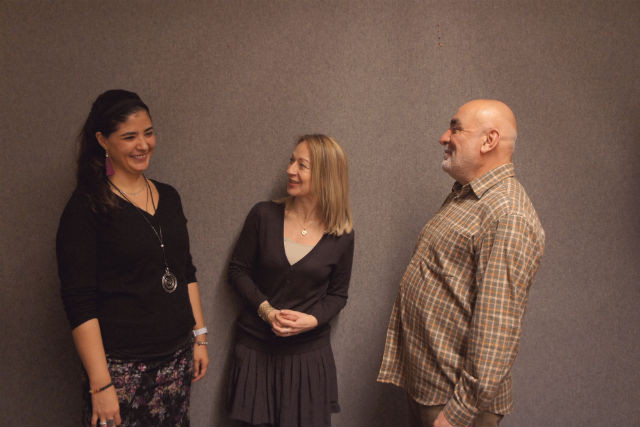“I couldn’t sleep or control myself. I had a lot of flashbacks and memories,” Raad Ahmed Alquasi tells Delano. He left Iraq for Libya in 1990 where he worked as a high school teacher for 20 years before coming to Luxembourg in 2015. At the age of 56 he had left everything behind to live in an all-male shelter, where he shared a room with five other men.
The turning point for Alquasi was finding Koru, a not-for-profit set up in 2017 by a group of concerned citizens to provide a holistic help to empower vulnerable groups like refugees.
The group’s practitioners, who are trained with empowerment and solidarity organisation Capacitar International, first brought their techniques to an isolated all-male shelter in Bourscheid. “We spoke with Olai [the integration agency] and they said it was very urgent,” Lidice Mendizábal Luna, one of the volunteers explains. “Our purpose was to go and work with people who face, apart from the situation of asking for asylum, the fact they are located in environments where they don’t easily have access to transport. Because this just worsens their condition.”
Identity and integration
The team has since worked with a lot of displaced men, both refugees and asylum seekers, who are dealing with everything from insomnia, to depression, anxiety and PTSD. They have also worked with women, and children but men, they say, have been easier to reach.
Part of their goal is to help equip these displaced people with the skills to handle their trauma so they can heal, learn new skills and languages and build a new life.
“When you’re emotionally disturbed, your brain can’t absorb and process new information like a completely new language with another alphabet,” psychotherapist and volunteer Denise Clarke says. “So, there are a lot of factors which prevent people from an easy adaptation, especially when you’re not sure of the final decision [of your asylum application].”
Retaining one’s sense of identity was also identified as a complex issue, says Mendizábal Luna, who points out that it is a human right to keep and show one’s identity but in certain contexts, like assimilation, this is all too often forgotten. “Integration is understood as assimilation. But it is a learning process. Even before learning the language and culture, there comes another process: the connection with yourself and the small community you’re starting to form,” she says.
Holistic programme
Last year Koru created an eight-session holistic programme, a tool kit which teaches everything from breathing exercises and Tai-Chi, to positive psychology and art, among other things, using a population education approach.
It worked for Alquasi, who now has his own place in Sanem, not far from the last shelter he lived in. He works part-time as a restaurant chef, and spends his free time helping translate during the Koru workshops. He says he even teaches the tools to others, for instance he shares the breathing techniques with the table tennis team he manages. “It’s changed me and it’s changed other people,” he says.
The not-for-profit was initially funded by Mateneen, a philanthropic initiative from lottery managers Oeuvre. Last year, Koru received the blessing of the health ministry and now the team is seeking the finances to run workshops four days a week to benefit even more people. “We all have other jobs, but it’s a lot of work,” says Mendizábal Luna. “Now we’re asking for support in a way that we can become sustainable.”
One funding stream could come from the public courses it is offering. Registration is now open for next public course starting at the end of May and running until July. Participants can attend on Wednesday evenings, or afternoons on Saturdays and Sundays.
To find out more, visit www.koru-foundation.org
